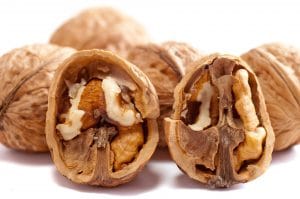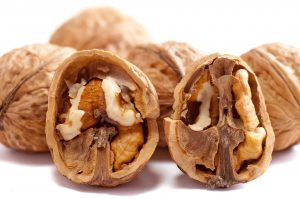 Often, diets focus on removing foods that can cause weight gain. Despite reducing calories, many people fail to achieve and maintain long-term weight loss with these diets. However, there is an increasing focus on an ‘enjoyment model’ – diets that add healthy foods in. Research is now focusing on the foods that can aid in weight loss and healthy food choices.
Often, diets focus on removing foods that can cause weight gain. Despite reducing calories, many people fail to achieve and maintain long-term weight loss with these diets. However, there is an increasing focus on an ‘enjoyment model’ – diets that add healthy foods in. Research is now focusing on the foods that can aid in weight loss and healthy food choices.
Background
Old-school diets are based on the removal of calorie-dense foods and/or food groups – fats, carbohydrates and sugar being the most common targets. However, health experts believe that focusing on individual food choices could aid in weight loss and overall health. Adding foods in may be more sustainable and effective long-term than removal and restriction of foods.
By studying the effects of adding healthy foods into the daily diet, it’s possible to demonstrate the benefits of ‘enjoyment model’ diets over a deprivation model. With that in mind, a study was designed to examine how consuming walnuts could impact on weight loss.
The study
The research was conducted as a secondary analysis of the Australian HealthTrack study. Participants were living in the Illawara region and had a body mass index of 25-40kg/m².
They were randomised into one of three groups – usual general care based off the Australian Dietary Guidelines (C), individualised dietary advice (I) or individualised dietary advice and an addition of 30g of walnuts per day (IW). Walnuts were provided as a complimentary sample.
Researchers then monitored body weight, energy intake, intake of key foods, physical activity and mental health over a 3 month and 12 month period. Specifically, they tracked the consumption of other beneficial foods, including fish and seafood, fruits and vegetables, as well as unhealthy or ‘discretionary’ foods.
The findings
293 participants finished the 3 month intensive, and 175 had follow-up data available at 12 months.
Over the 3 month period, the IW group had the greatest weight loss. Compared to the C group, IW had shown reduced intake of discretionary foods and significantly improved healthy food choices. IW had increased intake of walnuts and other nuts, as well as increased intake of fruit.
At 12 months, the IW group still had the greatest amount of weight loss. There was no significant difference reported in any of the groups for physical activity levels or mental health. However, the IW group did experience the greatest increase in physical activity.
Conclusions
Researchers concluded that inclusion of 30g of walnuts per day into an individualised diet could produce weight loss and improved food choices.
It was noted that the improvement of food choices was key to lasting weight loss and health benefits. By improving the quality of food choices, participants are more likely to reduce their overall energy intake and increase their nutrition status.
Although not significant, the increase in physical activity was thought to be due to participants implementing a generally healthier lifestyle.
By focusing on adding in foods rather than restricting them, people may experience more success with achieving their long-term weight goals.
References
Neale, E.P., Tapsell, L.C., Martin, A., Batterham, M.J., Wibisono, C. and Probst, Y.C., 2017. Impact of providing walnut samples in a lifestyle intervention for weight loss: a secondary analysis of the HealthTrack trial. Food & nutrition research, 61(1), p.1344522.
Denise Webb. 2011. Think Positive — Focusing on Foods to Add, Rather Than Avoid, Helps Your Patients Succeed. [ONLINE] Available at: http://www.todaysdietitian.com/newarchives/020911p24.shtml. [Accessed 30 August 2017].

